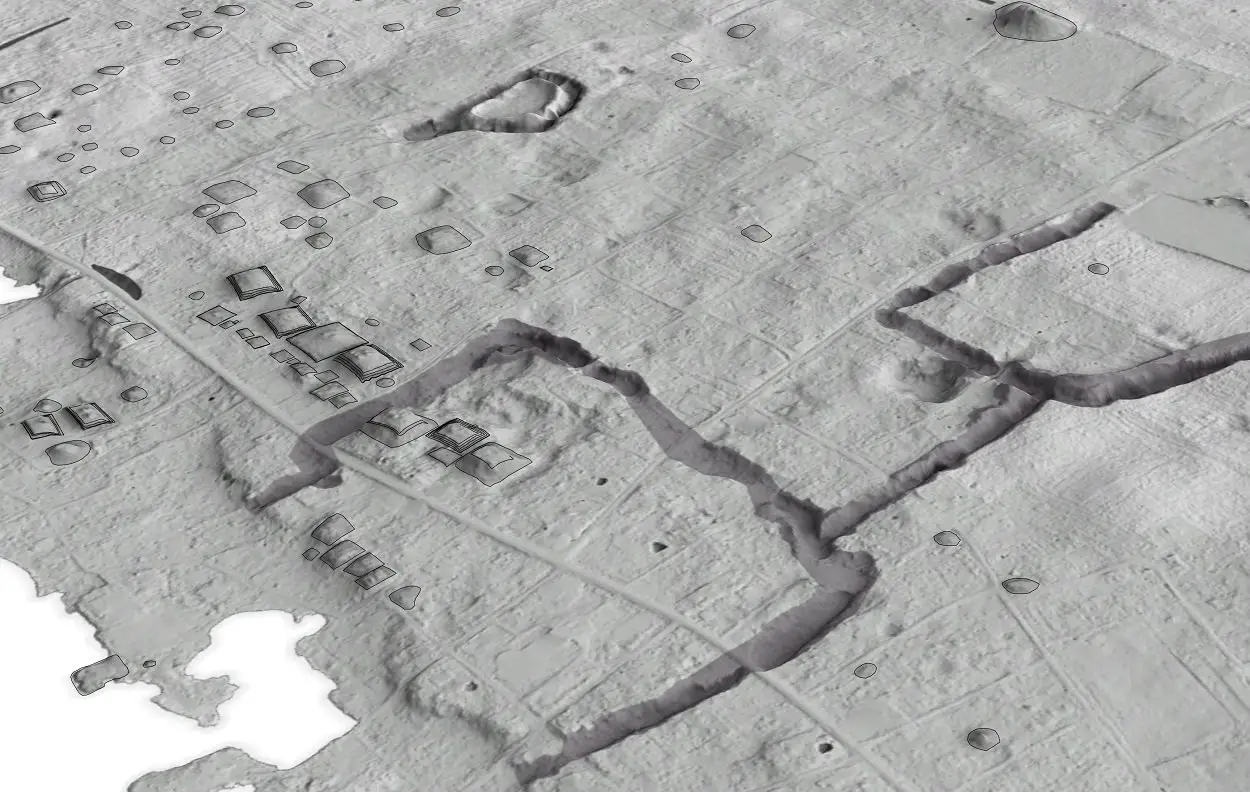A new study, published in the Journal of Archaeological Method and Theory has provided new evidence to suggest that the first Pacific cities were founded in AD 300, 700 years earlier than previously thought.
Tongatapu is the main island of Tonga and the site of its capital, Nukuʻalofa. The earliest traces of human occupation date from between 900 to 850 BC.
The island has the highest concentration of archaeological sites, which includes the Haʻamonga ʻa Maui trilithon, ancient burial mounds, and the Papae ‘o Tele’a Tombs.
Tongatapu was first sighted by Europeans in 1643, and the first direct contact between the islanders and Europeans taking place during Captain James Cook’s expedition on the British vessel Resolution in 1773.
The journals of Cook described an intensively developed landscape with a transport network that connected residences across the island.
Using data recorded from an airborne lidar survey and ground investigations, the island of Tongatapu in Tonga has been mapped to reveal an urbanised landscape of earth mound clusters linked by a transport network matching Cook’s descriptions.
Recent and existing archaeological evidence, along with observations made by early European arrivals have indicated that many mounds served a domestic function for house foundations.
Lead author, PhD scholar Phillip Parton from The Australian National University (ANU), said: “Earth structures were being constructed in Tongatapu around AD 300. This is 700 years earlier than previously thought”.
“As settlements grew, they had to come up with new ways of supporting that growing population. This kind of set-up – what we call low density urbanisation – sets in motion huge social and economic change. People are interacting more and doing different kinds of work, added Parton.”
According to Mr Parton, the collapse of this kind of low-density urbanisation was largely due to the arrival of Europeans.
Header Image Credit : Phillip Parton/ANU
Sources :
Parton, P., Clark, G. Low-Density Urbanisation: Prestate Settlement Growth in a Pacific Society. J Archaeol Method Theory (2024). https://doi.org/10.1007/s10816-024-09647-8





